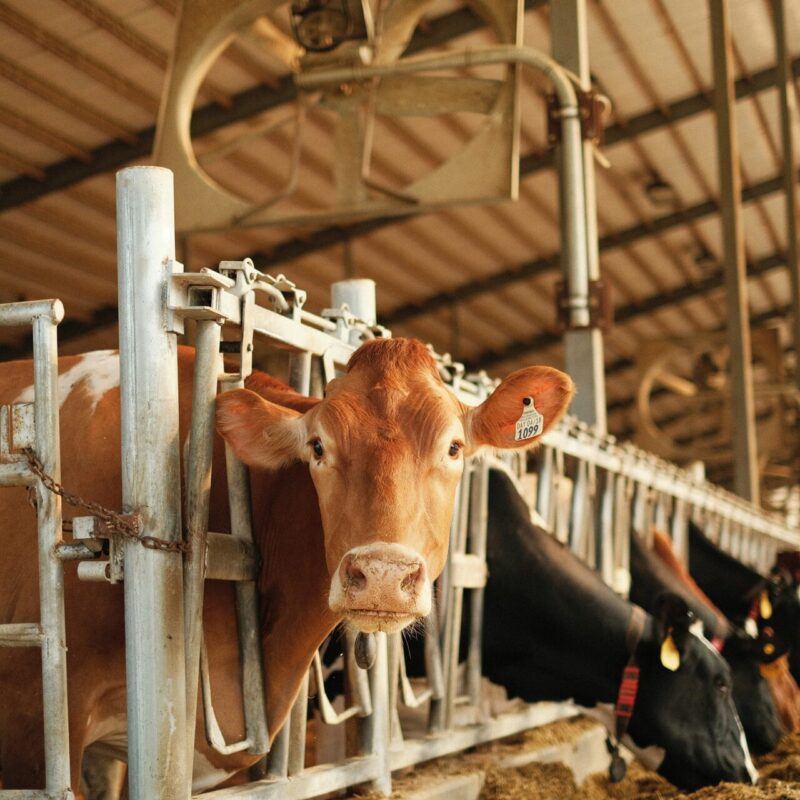Emissions Impossible Report

The report Emissions Impossible – Changing Markets 2023 for the first time estimates the methane emissions of five of the largest meat corporations and ten of the largest dairy corporations. Their combined meth- ane emissions are roughly 12.8 million tonnes, which equates to over 80% of the European Union’s entire methane footprint. These companies’ emissions represent around 3.4% of all global anthropogenic methane emissions and 11.1% of the world’s livestock-related methane. The report also provides the latest estimates for the overall greenhouse gas (GHG) emissions of the same companies, which amount to around 734 million tonnes of CO2 equivalent – higher than the emissions of Germany. The report calls for urgent and ambitious legislation to address the significant climate impacts of global meat and dairy corporations and for governments to support a just transition for the transformation of industrial animal agriculture.
„Our estimates show that the combined methane emissions of these 15 companies far exceed the entire methane footprint of many countries, including Russia, Canada, Australia and Germany. Their methane emissions are 52% higher than the livestock-related methane emissions of the EU and 47% higher than those of the US. Individual companies’ methane emissions are also comparable to countries’ livestock-related methane emissions. For instance, Marfrig’s methane emissions rival those of Australia’s entire livestock sector, Tyson’s are comparable to the Russian Federation’s, and Dairy Farmers of America’s to the livestock methane of the UK. JBS’s methane emissions far outpace all other companies. Its methane emissions exceed the combined livestock methane emissions of France, Germany, Canada and New Zealand or compare to 55% of US livestock methane. When calculated over a 20-year timescale, the more relevant scale for climate action, these emissions are even more significant, comprising an- ywhere from nearly half to three-quarters of these companies’ estimated GHG footprint, highlighting the urgent need for action on methane. Their total overall GHG emissions are also significant, slightly higher than the emissions of Germany. If these 15 companies were treated as a country, they would be the tenth largest GHG-emitting jurisdiction in the world.5 Their combined emissions also exceed those of oil companies such as ExxonMobil, BP and Shell. In spite of their massive climate impact, the majority of companies fail to report either total GHGs or methane-specific emissions. Nine out of 15 companies (60%) either do not report their emissions or do not report their total supply chain (scope 3) emissions. None of the companies reported their supply chain methane emissions.”
Credit: unsplash

